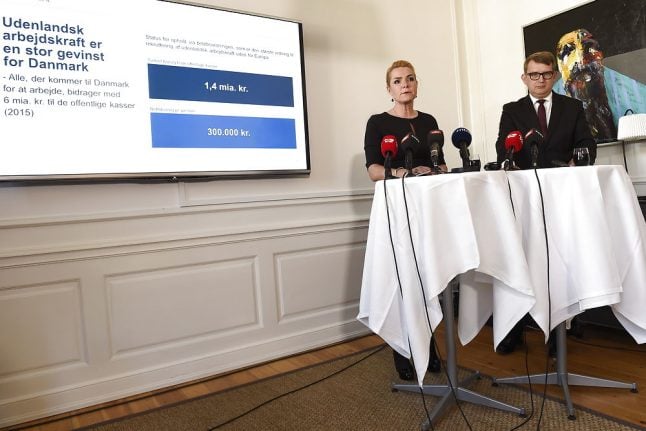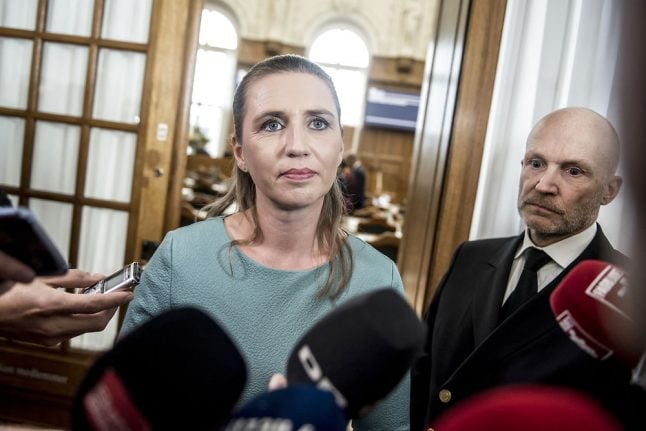The programme seeks to “make it easier and less bureaucratic for Danish companies to attract and employ foreign labour,” the Ministry of Employment said in a press statement.
Decreasing unemployment figures and a growing Danish economy, along with companies signalling they were in need of skilled labour, were behind the new initiative, according to the government press release.
Prime Minister Lars Løkke Rasmussen confirmed in his speech at the opening of parliament on Tuesday that the government would look to support Danish companies in this regard in the coming parliamentary term.
Companies running into red tape and struggling to fill key positions could have a longer-term negative impact on jobs, growth and welfare, according to the statement released on Wednesday.
“Foreign labour is beneficial for all Danes in the form of increased growth and more kroner in the public purse,” the statement read.
A key element in the package, details of which were published on the Ministry of Employment website, includes adjustment of the pay limit scheme (beløbsordningen in Danish), a provision that enables companies to hire employees who are nationals of non-EU, EEA or EFTA countries provided they are paid a set salary.
The minimum salary to qualify for the scheme will be reduced from 418,000 kroner to 330,000 kroner for nationals of countries on the list of top 30 investment flow countries to Denmark (provided they are not already covered by free movement).
The package also proposes updates to the so-called ‘positive list’, a list of specialities within industries in which Denmark currently lacks highly skilled labour. Degree-level qualifications within the fields covered by the list can qualify a foreign employee for a working visa in Denmark.
The proposal also includes streamlining and simplification of rules and application processes for foreign nationals working in Denmark.
“We have strict immigration policies so there is control over influx. But we must also give Danish companies the best possible basis for attracting necessary and qualified labour. Talented people from abroad are of great benefit to Denmark and an important element of growth and progress,” Støjberg said in the statement.
Poulsen said the initiative was an important step in order to avoid leaving Danish companies at a disadvantage.
“In a time when the labour market is under pressure, we must set all our sheets to the wind to secure qualified labour for companies all over the country. Otherwise, we could end up in a situation in which we absolutely must not find ourselves, where companies say ‘no’ to orders and we lose jobs,” Poulsen said via the statement.
The minister also said that the programme would not result in Danes being kept out of work.
“We are not opening ourselves to foreign labour without ensuring that it competes on equal terms with Danish labour. Foreign labour is in no way the solution to all recruitment problems. We will therefore continue our work to provide jobseekers with qualifications, giving them the skills that businesses need,” he said.
The Confederation of Danish Industry (Dansk Industri, DI), a private interest organisation funded, owned and managed by 10,000 companies within the manufacturing, trade and service industries, welcomed the government announcement.
“We receive the new strategy for international recruitment from the government very positively. We have asked for better access schemes for international experts for some time, and also for simplification of the rules,” Linda Wendelboe, head of global talent with DI, told The Local on Wednesday.
“These are things we have asked for for a long time and we’re very happy that the government has accommodated some of our requests in the new proposal,” Wendelboe said.
“From our side, there’s a serious problem in Denmark related to lack of qualified labour and we need to make it more flexible for companies to recruit internationally,” she added.
According to figures from national bureau Statistics Denmark, unemployment fell by 600 between July and August this year. 11,200 people gained employment during the 12 months prior to August 2018. The exceptionally high employment figures are a warning sign given the current struggles of many companies to fill positions, DI has argued.
READ ALSO: Denmark must be better at selling itself to foreign talents: CEO



 Please whitelist us to continue reading.
Please whitelist us to continue reading.